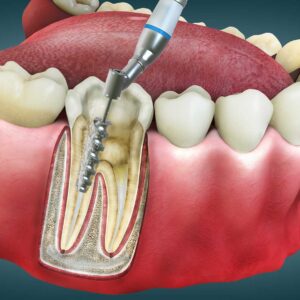Many people expect brighter teeth to come with some level of temporary sensitivity. What most do not realize is that their breathing habits may play a larger role in this sensitivity than the whitening treatment itself. The way you breathe influences oral moisture, enamel hydration, saliva flow, and even the way whitening ingredients react on tooth surfaces. Understanding this relationship can help you make better choices when seeking teeth whitening in Bullhead City or teeth whitening in Bullhead, Arizona, while keeping discomfort to a minimum.
This blog explores how breathing patterns contribute to sensitivity and how simple changes can make your whitening experience significantly more comfortable.
Understanding Teeth Whitening Sensitivity
Why Whitening Sensitivity Happens
Teeth whitening works by allowing whitening agents to penetrate the enamel and break up discoloration. During this process, the enamel becomes temporarily more porous, which may expose the underlying dentin. Dentin has microscopic tubes that lead directly to the tooth nerve, which explains why sensitivity can occur during or after whitening treatments.
Moisture levels, enamel hydration, and the environment inside the mouth influence how whitening agents behave. This is where breathing habits begin to matter.
How Breathing Affects the Oral Environment
The Difference Between Nose Breathing and Mouth Breathing
Breathing through the nose helps maintain moisture in the mouth. Mouth breathing, however, creates constant airflow that dries the oral tissues and reduces saliva production. Saliva is essential because it protects enamel, neutralizes acids, and keeps teeth hydrated.
When saliva levels drop, enamel becomes drier. Whitening gel tends to penetrate dry enamel more intensely, which increases the likelihood of sensitivity.
Many people breathe through their mouths without realizing it, especially at night. If you are planning teeth whitening in Bullhead City, identifying these habits can make a big difference.
Why Mouth Breathing Increases Whitening Sensitivity
Lower Moisture Levels Increase Discomfort
Mouth breathing dries out the enamel, making it more vulnerable during whitening. This dryness allows whitening agents to move more quickly into the tooth structure, which amplifies sensitivity levels.
Because Bullhead City has a desert climate, which naturally has drier air, people who live in Bullhead Arizona may experience even more dryness and sensitivity if they breathe through their mouth regularly.
Reduced Saliva Means Reduced Protection
Saliva is a natural buffer for whitening treatments. It helps:
- Protect enamel
- Reduce irritation
- Wash away whitening gel residue
- Maintain a neutral pH
Less saliva means less protection, and the teeth become more reactive to whitening ingredients.
Constant Airflow Lowers Temperature in the Mouth
Cooler, drier air from mouth breathing alters the environment inside the mouth. Lower temperature and dryness can make already sensitive teeth more reactive. Whitening sensitivity often increases when the oral temperature fluctuates.
Nighttime Breathing Habits and Whitening Sensitivity
Why Nighttime Mouth Breathing Causes the Most Issues
Many people breathe through their mouth at night due to:
- Allergies
- Congestion
- Poor nasal airflow
- Snoring
- Sleep apnea
Nighttime mouth breathing can leave enamel extremely dehydrated by morning. If whitening is applied on dehydrated teeth, sensitivity tends to spike.
If you plan to undergo professional teeth whitening in Bullhead City, your dentist may ask about your sleep habits because nighttime mouth breathing is one of the top contributors to heightened post-whitening sensitivity.
How to Identify if You Are a Mouth Breather
You may be a mouth breather if you experience:
- Dry mouth when waking up
- Chapped lips
- Snoring
- Frequent bad breath
- Difficulty breathing through the nose
- Feeling out of breath during conversations
If any of these apply, your whitening treatments may cause stronger sensitivity unless the breathing habit is addressed.
How Improving Breathing Habits Reduces Whitening Discomfort
Switching from Mouth Breathing to Nasal Breathing
Nasal breathing is the most natural and healthiest breathing method. It helps maintain oral moisture and keeps enamel hydrated. This lowers whitening sensitivity and supports healthier teeth overall.
Hydrating Before Whitening
If you plan on whitening, whether at home or through professional teeth whitening in Arizona, stay hydrated throughout the day. Proper hydration increases saliva flow and keeps enamel from becoming overly dry.
Humidifiers for Nighttime Comfort
A humidifier in the bedroom may help individuals who live in dry climates like Bullhead City. Increasing humidity reduces oral dryness and protects enamel overnight.
Practicing Breathing Exercises
Breathing exercises, such as slow nasal breathing or diaphragmatic breathing, can help people retrain their breathing patterns. Over time, this shift improves oral hydration and reduces whitening sensitivity.
Additional Tips to Minimize Teeth Whitening Sensitivity
Use a Desensitizing Toothpaste
Desensitizing toothpaste can help strengthen enamel and reduce the stimulation of nerve endings. This is especially helpful before professional whitening treatments.
Strengthen Enamel Before the Whitening Appointment
Remineralization products like fluoride gels or mineral-rich toothpaste help reduce enamel permeability. This reduces sensitivity during whitening.
Avoid Whitening Immediately After Waking Up
If you are a nighttime mouth breather, your teeth may be at their driest in the morning. Whitening at this time increases sensitivity, so evening whitening sessions are often more comfortable.
Professional Whitening for Better Control
Professional teeth whitening in Bullhead City offers customized treatments that can include sensitivity management. Dentists can control concentration, duration, and aftercare, making the process more comfortable for mouth breathers.
Conclusion
Your breathing habits play a surprisingly significant role in how your teeth respond to whitening treatments. Mouth breathing dries the enamel, reduces saliva flow, and creates an environment where whitening agents can trigger stronger sensitivity. By understanding this connection and adjusting your breathing patterns, you can improve your whitening experience and protect your oral health.
Whether you choose at-home whitening or professional teeth whitening in Bullhead, Arizona, managing your breathing habits can help you achieve a brighter smile with less discomfort. If you frequently experience sensitivity, discuss your breathing habits with your dentist so they can tailor your whitening plan for maximum comfort and effectiveness.




